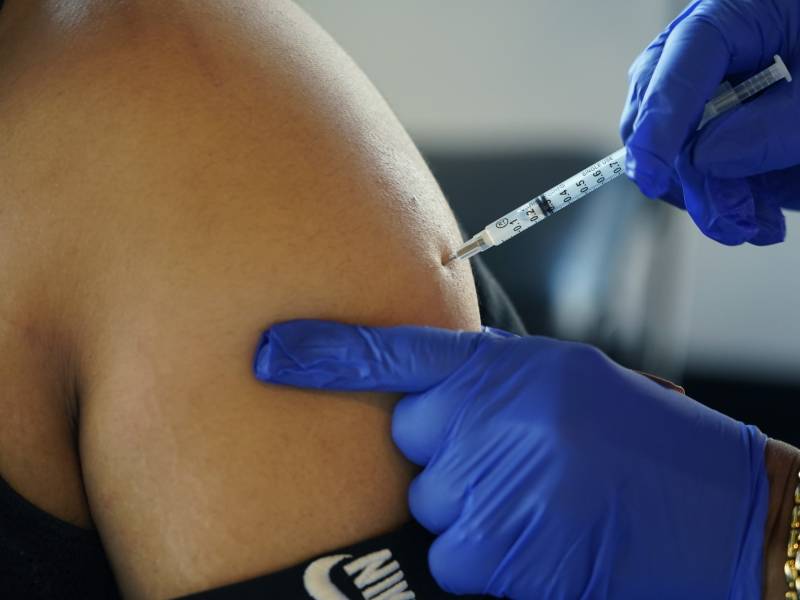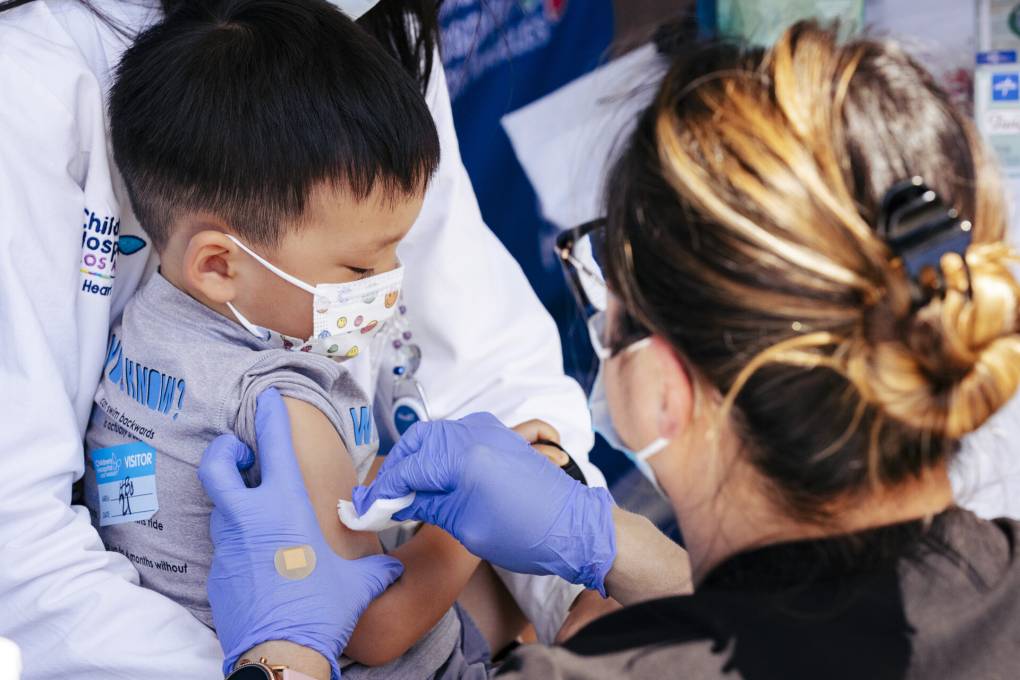Can I time my shot for maximum protection at the holidays?
It won’t be a surprise if there’s another COVID surge this coming winter. Since the protection from boosters may only last several months, some people say they plan to wait to get the new booster in order to have maximum protection when the risk of infection is higher. “You can make a rational argument to wait until case rates are higher,” says Wachter.
If you’re trying to time it for the period of highest risk, he says, there are likely to be a ton more cases in December and January than there are in September and October.
However, Wachter says, this strategy is a bit like trying to time the stock market. It’s hard to predict exactly when the surge will happen, so there’s a risk in waiting.
“You are basically accepting a period of vulnerability that you don’t need to have,” he says. “And as I weigh all that, my thinking is I’d rather not do that.”
Another argument against waiting is that the protection from a booster shot is not instantaneous. “It does take a few weeks for our immune systems to be primed,” says Dr. Aniruddha Hazra, an infectious disease specialist at the University of Chicago. He says it could be risky to wait until a surge is already underway.
Hazra points out the vaccines can activate our immune systems in a few ways. Immune cells, known as B cells, help produce antibodies that fight off the virus in the short-term. Research shows COVID vaccines boost antibodies for several months, but then they begin to fade. After that, B cells and another type of immune cell, known as T cells, which can destroy infected cells, stick around to build a deeper immunity.
He says this deeper immunity was triggered and primed from the initial vaccines, so everyone who’s been vaccinated should have some protection against COVID But given the omicron subvariants circulating now are so different. “This [new] booster will definitely provide you with higher levels of antibodies, which are short term and short lived. It may also provide more deep-seated immunity,” he says.
Will the new booster shots prevent COVID infections completely?
No. There’s lots of enthusiasm for the updated boosters, but they are not a magic bullet
As SARS-CoV-2 has evolved, it’s become more transmissible, which is why delta and omicron led to such large surges, despite widespread vaccination in the U.S.
“The goal of this vaccine is to prevent severe illness,” says Paul Offit, director of the Vaccine Education Center at the Children’s Hospital of Philadelphia. He argues that many people who’ve already received three doses of vaccine remain well protected, so he doesn’t see a clear benefit to giving the new boosters to everyone 12 and up.
According to CDC data, people who have had one or two boosters have a 0.024% chance of being hospitalized with COVID-19. For people under 50, it’s even lower — 0.014%
Offit agrees that certain groups should receive the new booster including elderly adults, people who are immunocompromised and those with chronic conditions that put them at higher risk of serious illness. But he questions the value of another booster for healthy, younger people.
Offit says he had a mild infection in May that lasted a few days. He’s decided against getting the new booster. “I think I’m protected against serious disease.”
The new boosters offer a few months’ protection against infection, he says, but there’s no clear evidence of benefit beyond that.
Copyright 2022 NPR. To see more, visit https://www.npr.org.
9(MDAxOTAwOTE4MDEyMTkxMDAzNjczZDljZA004))



9(MDAxOTAwOTE4MDEyMTkxMDAzNjczZDljZA004))